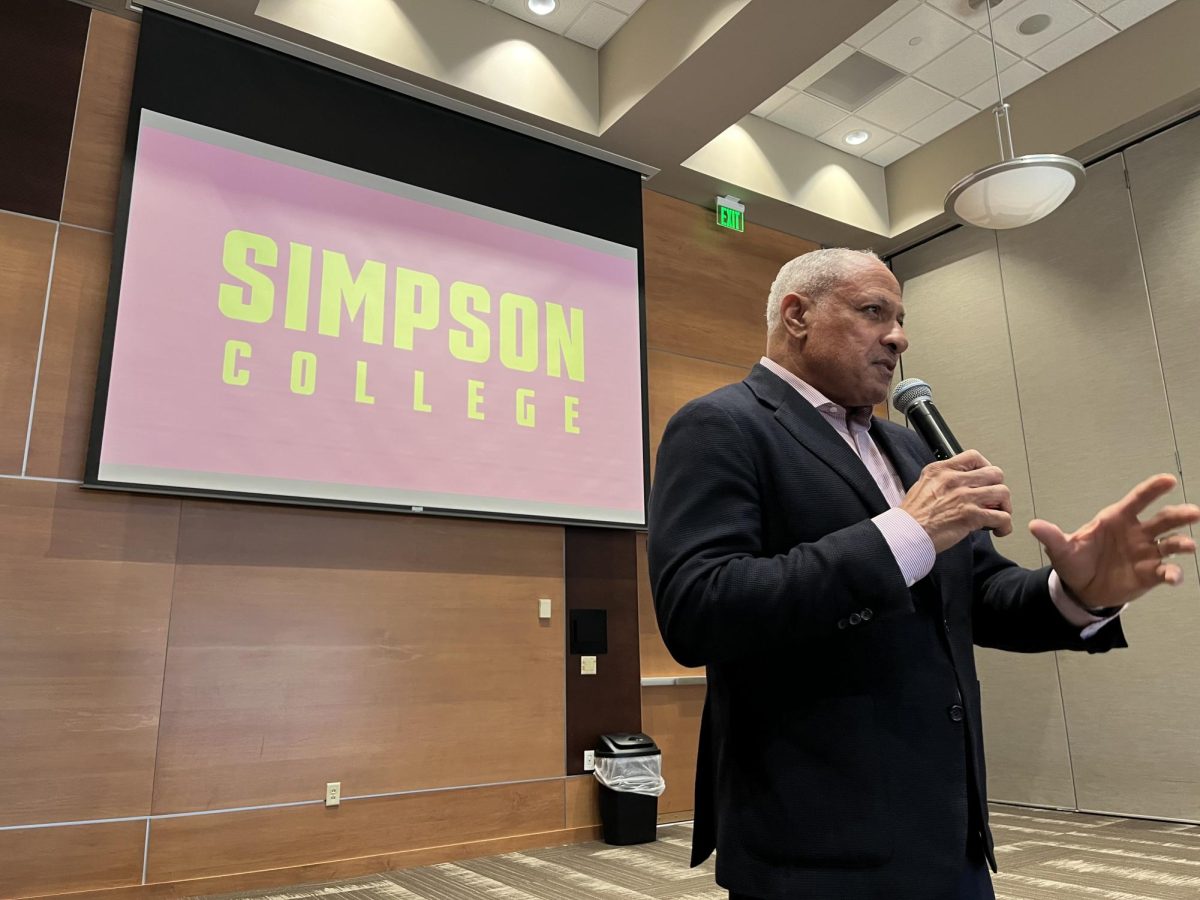Tenure becomes an elusive term
January 23, 2003
Tenure has been the topic of many conversations on the Simpson campus lately. As potential controversy surrounds the issue, understanding tenure becomes an increasingly difficult task for both students and faculty.
According to Mark Freyberg, associate professor of sociology, whenever a person is denied tenure it always becomes a controversy. This is especially true at a small campus like Simpson.
Students at Simpson have no overt voice in determining which professors receive tenure and which ones do not. According to the dean for academic affairs, Bruce Haddox, students are not involved in the tenure evaluations. The only say Simpson students have in the tenure process is the course evaluations that are filled out at the end of a course.
“Students are affected if a professor does not get tenure,” said junior, Sara Neppl. “If I really like a professor, then I would think that students in the future would like that professor as well.”
Tenure is given to professors after six years of service to the college. If a professor came to Simpson with previous experience from a different institution, it is decided how many years will be needed for them to achieve tenure status at Simpson. Although it sounds as if tenure is just a promotion, it isn’t. Tenure is a long and complicated process that begins with a faculty member’s third year review.
At the beginning of a faculty member’s third year at Simpson their department chair submits a letter of recommendation to the Faculty Personnel Committee stating whether or not this person will eventually be a good candidate for tenure. The faculty member is looked at based upon not only their abilities to teach and advise, but also their services to the college, the community, and they must also show that they are developing professionally.
“I didn’t know what was going to be important to the people making the decision,” said Freyberg, a recently tenured professor, who referred to the tenure process as “mystifying.”
There is a set of guidelines that Simpson follows that are set by the American Association of University Professors (AAUP).
“Simpson College grants tenure to those who have, through their work here, proven themselves worthy of this type of protection,” said Haddox.
Tenure is a promise made by the college to allow tenured professors freedom of academic ideas. This allows professors to teach freely without worry of persecution from the institution. Tenure also promises the professor continual employment provided that they continue their duties.
Simpson has 84 full time professors and 50 of those 84 are tenured. Not all positions can become tenured, such as coaches or provisional positions. Most tenured positions require a Ph.D.
Tenure can be granted no earlier than a faculty member’s fourth year and no later than their sixth year here at Simpson. If after six years a professor still isn’t tenured then, the AAUP mandates that a professor must receive a terminal contract.
A word of advice to students from Freyberg, “Don’t try to understand it [tenure] because some of the junior faculty don’t understand it.”
Professor of mathematics, Bruce Sloan, chair the FPC, was able to easily describe the tenure process.
He said that the FPC receives self-evaluations and letters of recommendation from department chairs and division heads for each professor that is eligible for tenure.
An application for tenure accompanies the evaluations and recommendations. Based on these documents, the FPC decides whether each professor is a good candidate for tenure.
If the FPC decides that a professor is a good candidate to receive tenure, they pass on a recommendation to Haddox and President LaGree. Haddox and LaGree then look over all recommendations and decide whether or not to recommend this professor for tenure.
If Haddox and LaGree both agree that this person is worthy of tenure at Simpson College then they recommend this person to the Board of Trustees. The Board of Trustees ultimately decides whether this person should receive tenure from Simpson College or a terminal contract.
Although the tenure system is set up with five main points of review, each division head and department chair sets up certain goals for every junior faculty member. These goals are closely looked at when it comes time for yearly reviews.
The process may appear clear, but many professors that have worked their way through this process would agree with Freyberg’s sentiments that “tenure is clear as mud.”
The easiest way to describe tenure is the allowance of academic freedom and ideas to faculty. This means that in class a professor may teach whatever he/she would like and could not be persecuted because of the institutions political beliefs. “I feel more free to speak my mind with administration,” said Freyberg.
“There’s an awful lot of uncertainty in the process,” said Freyberg when referring to tenure. It’s hard to understand what needs to be done to earn tenure. Freyberg said, “I’d really like to see student input play a bigger part.”




